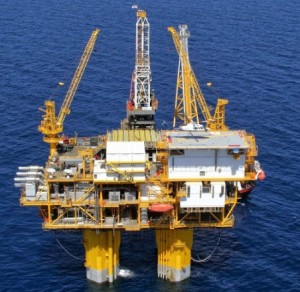Africa optimistic of increased gas production in 2021
 Although the global energy sector has been adversely affected by the COVID-19 pandemic this year – with oil hardest hit because of its dependence on the struggling transport industry – gas has been less exposed to the shocks of 2020, according to the Africa Energy Outlook 2021.
Although the global energy sector has been adversely affected by the COVID-19 pandemic this year – with oil hardest hit because of its dependence on the struggling transport industry – gas has been less exposed to the shocks of 2020, according to the Africa Energy Outlook 2021.
Launched virtually recently by the African Energy Chamber, the Outlook said the continent’s production of oil and gas was expected to increase next year even though 2020 output had been “lukewarm”.
N.J. Ayuk, Executive Chairman of the African Energy Chamber, notes: “It goes without saying that Africa has witnessed its fair share of difficult times this year.
“Even though oil and gas activities have taken a hit, optimism surrounding African projects, fiscal regime and investments still exist but requires all of us as stakeholders to do more. ‘There has always been opportunity in drastic and unprecedented times, which gives us a lot to look forward to,’ added Mr Ayuk.
Although the global gas market was facing a glut of LNG before Covid-19, causing even more depressed prices as the pandemic’s impact on demand started to take effect early in 2020, West Africa has been able to take advantage of these low prices, according to the Outlook.
For example, the Tema LNG project is the first offshore LNG hub in sub-Saharan Africa and will soon be able to supply Ghana and its neighbours with cheap, reliable gas, competing with irregular and more expensive local supply options, according to energy experts.
The Outlook noted that there may now be an opportunity to stimulate more domestic gas consumption in Africa, emphasising the economic and development benefits that large-scale infrastructure investments like the Tema LNG plant can have on their country and the wider region.
It explained: “Expanding infrastructure to displace diesel, increased use of gas in the power mix and gas for industrial purposes are all initiatives that would benefit from the current low cost of gas.
“Thankfully, African officials and regulators have increasingly seized the importance of natural gas and pushing for its adoption across industries, especially in key hydrocarbons market in West, Central and Southern Africa.”
The Outlook added: “Monetising gas makes even more sense in Africa given the continent’s very high flaring intensities.
“While Africa benefits from conventional and easy to extract hydrocarbons, the inability to prevent gas flaring nevertheless catapults the continent to the overall least carbon efficient continent at about 31 kilogrammes CO2 emitted per barrel of oil equivalent produced,” the Outlook said.
“Only stronger monetisation of gas at home could justify using Africa’s gas reserves for industrial and power generation purposes instead of burning and wasting them.
“In doing so, Africa would not only reduce its carbon intensity, but also become more attractive to global investors seeking to allocate capital to the least carbon intensive projects possible,” the Outlook added.
The African Energy Chamber urged the continent’s natural resources producers to keep the sector competitive and create jobs but also warned that industry stakeholders must reform the sector to deal with uncertain markets that are projected to see a cut of $30 billion on capital expenditure.
The report explores the forces shaping the continent’s energy market in the wake of the shocks caused by Covid-19 in 2020, and analyses the projected recovery on the back of the global energy transition.
Apart from the spending cut of $30 billion, the Chamber has identified a further $80 billion of investment whose approval will depend on improving market conditions, “along with bold policy and fiscal reforms from African regulators”.
The Outlook highlights the expected outcome of post Covid-19 strategies to the African energy sector in 2021 and beyond.
It also assesses Africa’s competitiveness compared with other regions, and highlights the opportunities that continue to emerge and exist across the entire energy value chain.
‘We look forward to this report serving as a basis for sound decisions towards a thriving energy industry in Africa,’ said the Senior-Vice President at the Chamber, Verner Ayukegba.
Source: GNA
